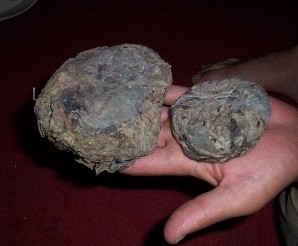The UN Office on Drugs and Crime (UNODC) warned Wednesday that the traffic in Afghan opiates is spreading drug use and addiction along smuggling routes, spreading diseases, and funding insurgencies. The warning came in a new report, Addiction, Crime, and Insurgency: The Threat of Afghan Opium. "The Afghan opiate trade fuels consumption and addiction in countries along drug trafficking routes before reaching the main consumer markets in Europe (estimated at 3.1 million heroin users), contributing to the spread of HIV/AIDS and other blood-borne diseases," the report said.

But the impact of the multi-billion flow of Afghan opiates could have an especially deleterious impact on Central Asia, UNODC chief Antonio Maria Costa warned in remarks accompanying the report. "The Silk Route, turned into a heroin route, is carving out a path of death and violence through one of the world's most strategic yet volatile regions," Costa said. "The perfect storm of drugs, crime and insurgency that has swirled around the Afghanistan/Pakistan border for years is heading for Central Asia."
In Pakistan and Afghanistan, the opium trade is funding violent radicals. "The funds generated from the drugs trade can pay for soldiers, weapons and protection, and are an important source of patronage," the report said. In Afghanistan, the Taliban generated between $90 million and $160 million annually in recent years, the UNODC estimated. In Pakistan, the UNODC estimated the trade at $1 billion annually, with "undetermined amounts going to insurgents."
Although Afghan opium production declined slightly last year, the country is producing -- and has produced -- more opium than is needed to meet global demand. As a result, the UNODC estimates that there is an unaccounted for stockpile of 12,000 tons of opium -- enough to satisfy every junkie on the planet for the next three to four years. "Thus, even if opiate production in Afghanistan were to cease immediately, there would still be ample supply," the report said.
Unsurprisingly, the UNODC report did not address the role that global drug prohibition plays in exacerbating problems related to opiate use and the opiate trade. Prohibitionist attitudes restrict the availability of harm reduction programs, such as needle exchanges, that could reduce the spread of blood-borne diseases. And it is global drug prohibition itself that creates the lucrative black market the UNODC says is financing insurgencies and spreading political instability.
This work by StoptheDrugWar.org is licensed under Creative Commons Attribution-ShareAlike 4.0 International
Comments
The Arizona Republic
reported yesterday, with typical faulty drugwar grammar, that, according to a U.N. report, "Afghan opium results in more than 100,000 deaths annually," apparently by supplying weapons that "insurgents use to kill NATO troops." This is the kind of stuff, blaming the drug, and by extension, the drug users, that keeps Nixon's war against the people alive and well.
What incredible arrogance to start a war and then act appalled when violence breaks out!
(I suppose it's also the opium that causes the citizens of third-world nations to rise up against invading armies.)
Vietnam Revisited
It is the opium plant that grows in Afghanistan and cash to be made by all, that keeps the war going. Prohibition in the U.S. and elsewhere fuels the war at home and abroad. Vietnam, Cambodia and Laos, the opium growing triangle of the world then, would supply Europe and U.S. with heroin. The real reason for war in Vietnam. Now, the powerful, with the support of naive Americans is waging the war in another opium growing part of the world. Without prohibition, there would be no money to be made, as there would be no reason to sell these drugs. With drugs illegal, the price goes up and it is a gold mine for the few that are truly responsible for the opium wars. Nothing new here. This has been going on for hundreds of years. Imagine, starting a war, traffic going back and forth, by sea and by air. Opium, too large to transport is reduced to powder heroin and shipped within the confines of the war. If people believed that the war was actually to stop communism, then think again. Do not be fooled again by so few. After I read "The Heroin Solution" by Trebach and other books detailing the facts, I was able to see clearly the real reason for the wars.
Add new comment